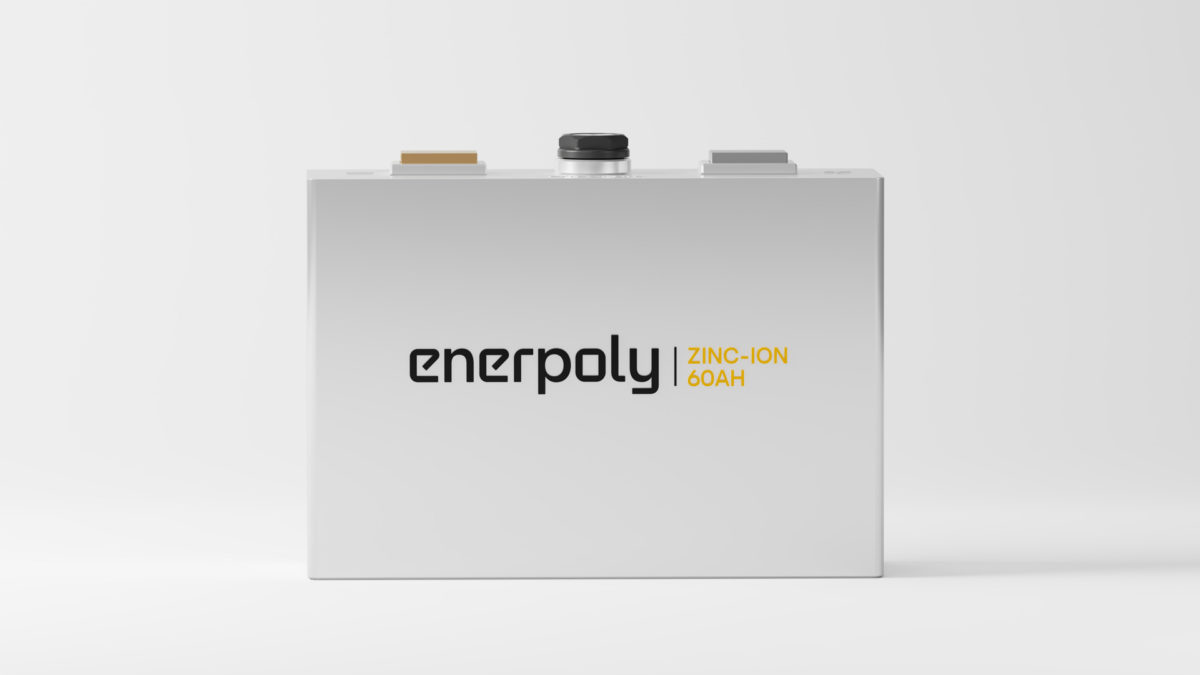Enerpoly has developed configurable, modular zinc-ion batteries for stationary storage applications. They are suitable for short- to medium-duration storage applications of two to 10 hours.
Its 3 kWh battery packs weigh 60 kilograms and measure 800 mm x 177 mm x 432 mm. They operate in the temperature range of -10 C to 50 C. The nominal voltage stands at 48 V, with a nominal capacity of 60 Ah. The battery packs have a maximum charge/discharge power of 2.8 kW, with 1.4 kW of continuous power.
Enerpoly’s technology uses zinc metal as the anode and manganese dioxide as the cathode, with a water-based electrolyte. Its proprietary battery cells are built with a prismatic form factor.
It claims that the technology is safer, without the possibility of thermal runaway. The Swedish startup says it has passed all safety standards and notes that it has tested its batteries against the UL 9540A standard.
Now, Enerpoly is partnering with Austrian PV startup EET (Efficient Energy Technology) on the “ZincMate” project. The say that their goal is “to drive the development and commercialization of an energy storage device that can be installed in all European households.”
The project partners have secured €870,000 ($937,000) in grant funding under the Eurostars-3 program, which originated from Vinnova and the Austrian Research Promotion Agency (FFG). The total project budget is €1.74 million.
The companies will produce ZincMate prototypes of a plug-in storage system with rechargeable zinc batteries. The technical basis for ZincMate is EET's on-grid technology, in combination with Enerpoly's cost-effective batteries. EET makes photovoltaic systems with energy storage that can be set up on a balcony and plugged into a wall outlet, so homeowners and tenants can produce their own renewable electricity.
EET, founded in 2017, is said to be the only company producing storage devices that can be installed by amateurs, without the help of technicians. EET’s innovation core for the SolMate device is an integrated and patented measurement technology that can assess the energy demand of a household via a power outlet connection. This eliminates the need for further installation or connection to a household’s electric grid.
“Currently, EET’s SolMate device is equipped with a state-of-the-art lithium-ion battery and it’s obvious that battery technology needs to improve,” says Christoph Grimmer, CEO of EET. “Moving to zinc-ion technology for residential applications is the next step in the right direction.”
The batteries developed under the ZincMate partnership will be tested in both laboratory and home environments, including apartments, small living spaces, and shared housing. The project will start this year and run for two years.
This content is protected by copyright and may not be reused. If you want to cooperate with us and would like to reuse some of our content, please contact: editors@pv-magazine.com.




50 Wh/kg is dismal compared to > 200 Wh/kg for a lithium ion battery system. The cycle life of a Zinc based system will also be much shorter than an Li-ion based battery due to the formation of zinc dendrites.
Aren’t zinc. Batteries, even old ones, reformable thought? Like lead acid flooded cells they should have no actual end of life, at least not limited by the anode an kathodes.
While energy density is and weight are not good, it does not really matter for residential application, just as it doesn’t with sodium ion batteries
Short life means long business.
There are solutions that can offer decades of service lives, very cheap and safe but those do not make great business.
Nickel-iron, iron-carbon, iron-iron, iron-sulphur.
Big, bulky, but cheap and long lasting. 30-60w/kg but pennies/wh.
I know, nickel is expensive now but that is because the landfills are now full of it.
And @DooMMasteR:
Zinc-carbon primary cells degrade the zinc cathode in a way that cannot reform in its solid metallic form.
Lead acid cells physically degrade the electrodes, turning them to dust (lead oxides and sulphates)
The space between the bottom and electrodes is there to allow this sediment to settle and not short the pack prematurely.
Being as these Zinc batteries are for stationary applications, weight is not an issue. No, it probably won’t come in a “hang off the wall” format, but a useful sized battery will not not be excessively large in volume. The fact that zinc is relatively cheap and plentiful and a has secure supply chain and already has a recycling waste stream in place, makes it more than a “niche” market product.